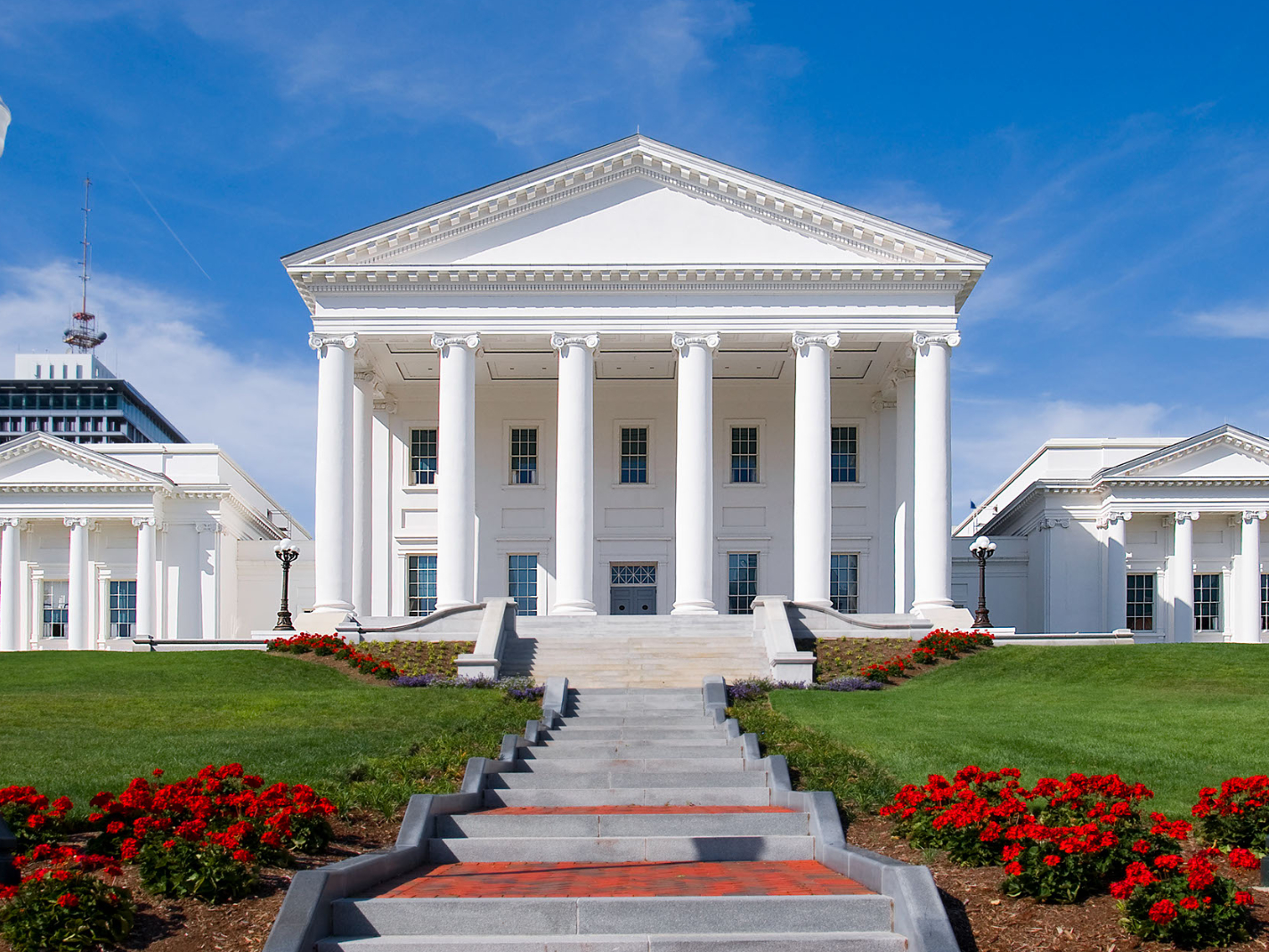Editor’s Note: The National Association of Scholars (NAS) and the Civics Alliance work to ensure that every state has academic standards that promote first-rate education and protect school children from political indoctrination. We promote reform of content standards in every state, along the lines modeled by the Civics Alliance’s American Birthright: The Civics Alliance’s Model K-12 Social Studies Standards, and we have been asked by Virginia citizens to comment on the Proposed Revised 2022 History and Social Science Standards of Learning (August 4, 2022). We conclude that these Proposed Standards should be substantially revised.
We have sent the following letter to the Virginia Board of Education.
Virginia Board of Education
Virginia Department of Education
James Monroe Building
101 N. 14th Street
Richmond, VA 23219
September 14, 2022
Dear Virginia Board of Education,
The National Association of Scholars (NAS) and the Civics Alliance work to ensure that every state has academic standards that promote first-rate education and protect school children from political indoctrination. We promote reform of content standards in every state, along the lines modeled by the Civics Alliance’s American Birthright: The Civics Alliance’s Model K-12 Social Studies Standards,1 and we have been asked by Virginia citizens to comment on the Proposed Revised 2022 History and Social Science Standards of Learning (August 4, 2022).2 We conclude that these Proposed Standards should be substantially revised.
The Proposed Standards: Grave Flaws
The Proposed Standards suffer from grave flaws.
- Confusing, Repetitive Format: The Proposed Standards have combined material kept in 2015 discretely as Standards of Learning and as optional Curriculum Frameworks.3 The Proposed Standards thus embed factual content within complicated pedagogical frameworks, including Skills and Contents, Overarching Inquiries, Themes, Understandings, Supporting Questions, Knowledge and Learning Experiences, and repeat the frameworks throughout. The Proposed Standards therefore has ballooned to 400 pages.4 Teachers will have difficulty comprehending the draft standards, and parents and policymakers, who should be able to hold teachers accountable for teaching according to the standards, will find the Proposed Standards virtually impossible to understand.
- Vague, Inflated Prose: The Proposed Standards use vague,5 pedantic6 prose throughout rather than plain English. The Proposed Standards’ prose style reduces accountability to parents and policymakers, since it renders the Proposed Standards obscure to anyone who has not gone to an education school.7
- Misguided Skills Emphasis: The Proposed Standards emphasize “skills” rather than factual content. This emphasis not only renders the Proposed Standards bulky and unreadable but also will steer teachers and school districts to waste scarce classroom hours teaching mandated skills rather than factual content.
- Misguided “Inquiry” Emphasis: The Proposed Standards echo the latest fashion in education schools, “inquiry-based learning” (p. 10), and phrases much of its content as questions rather than answers. This format renders the Proposed Standards even more bulky and unreadable, provides no help for teachers who don’t actually know the content the questions allude to, and facilitates an unfortunate tendency to include tendentious “questions” that imply answers that fit radical polemic.8
- Misguided Commitment to “Action Civics”: The Proposed Standards subordinate civics education throughout to “action civics,”9 also known as “protest civics,” which substitutes vocational training in progressive activism for classroom civics education.10
- Abbreviated Content: The Proposed Standards possess a drastically abbreviated factual content; for example, in a discussion of ancient Greece, the extraordinarily vague sentence, “Ancient people made contributions that affect the present world.”11 The lack of content provides no help to teachers who do not already possess that knowledge and facilitates the removal of large sections of core knowledge about the ideals, history, and governments of Western Civilization, the United States, and Virginia, as well as about the common culture of the American nation. The Proposed Standards register the reduced importance of factual content by repeatedly moving factual information from the basic topic requirements to the subsections, and then abbreviating the actual content required. (E.g., the treatment of North American geography, pp. 110-11)
- Skewed Content: The Proposed Standards provide disproportionate and slanted coverage of material that supports the radical ideology and pedagogy of group-identity politics, sometimes referred to as Critical Race Theory. (See Appendix 1: Sample Skewed Content.)
- Factual Distortions, Errors, and Absences: The Proposed Standards partisan bias extends to actual factual errors. (See Appendix 2: Sample Factual Distortions, Errors, and Absences.)
- World History Substituted from Western Civilization: The Proposed Standards cannot provide a coherent presentation of Western Civilization’s ideals and institutions of liberty, which Virginia students need if they are to understand the Declaration of Independence and the Constitution, because they substitute a disjointed and vague World History course for dedicated instruction in the history of Western Civilization.
- Structural Absences: The Proposed Standards especially abbreviate America’s unique history of political, religious, and economic freedom, the common culture of the American nation, those aspects of history and civics that illustrate America’s exceptional success in creating a free, scientifically and technologically advanced, and prosperous country, and the parts of Western and World history that illuminate the contrast between America’s extraordinary history and the ordinary tyrannies that constitute so much of human affairs. Notable structural absences from the Proposed Standards include:
- A coherent presentation of what makes Western culture and history distinctive, and what American students should cherish in their Western inheritance.
- A coherent presentation of what makes American culture and history distinctive, and what American students should cherish in their shared history.
- A coherent presentation of what makes Virginian culture and history distinctive, and what Virginian students should cherish in their shared history.
- A coherent presentation of the history of the ideals and institutions of liberty, including religious freedom.
- A coherent presentation of the nature and the triumphs of Western and American science and technology.
- A coherent presentation of the American nation’s common culture—America singing, and not least in the songs of Virginians such as the Carter Family and Ella Fitzgerald.
- A coherent presentation of the primary sources of World and American history—above all, America’s documents of liberty.
- A coherent goal to foster in students a common affection for America and for their fellow Americans, and to foster a common outlook as Americans.
The Proposed Standards: Recommendations
The Virginia Department of Education should not accept the Proposed Standards as they are. They should be substantially revised—and it would be better to start over completely.
- Preserve Existing Standards. Virginia’s existing standards, with discrete, optional Curriculum Frameworks, are far superior to the Proposed Standards. Virginia would do better to retain its old standards for a new cycle than to adopt the Proposed Standards.
- Appoint a New Committee: Governor Kristi Noem of South Dakota halted the adoption of a gravely flawed draft Social Studies Standard and appointed a new committee to draft new social studies standards.12 We suggest that Governor Youngkin do the same, and appoint a new committee, composed of politically diverse history professors, political science professors, and citizens, independent of the state education establishment, and tasked to create a lucid, brief, content-focused social studies standards, which pays primary attention to teaching students:
- the ideals and institutins of liberty that have animated the history of Western Civilization, the United States, and Virginia, and
- the common culture of the American nation.
- Set Parameters that Maximize Transparency and Accountability: The Standards should:
- adopt a straightforward bullet-point format;
- use lucid, everyday language;
- focus on factual content; and
- relegate material on skills and inquiry to separate, optional Curriculum Frameworks.
- Remove All Action Civics Prompts: The Proposed Standards should remove phrases such as civic engagement, which serve as euphemisms for action civics. They also should remove alignment with any external organizations, such as Educating for American Democracy (p. 7), which promote action civics.
- Strengthen Patriotic K-8 Education. The current Proposed Standards includes some material with patriotic emphasis—but it appears haphazardly. The Proposed Standards should make instruction in the civic symbols and proud history of Virginia and the United States a primary theme throughout K-8 instruction.
- Western Civilization: The Standards should contain discrete, sustained coverage of Western Civilization throughout K-12 instruction, to provide students the coherent narrative of the ideals and institutions of liberty contained within the histories of the ancient Middle East, Israel, Greece, Rome, Medieval Christendom, the Renaissance, the Scientific Revolution, the Enlightenment, and medieval and early modern England.
- World History: The Standards should contain discrete coverage of World History, to introduce students to the histories of Asia, Africa, and Latin America.
- Virginia History: The Standards should contain sustained coverage of those aspects of Virginia’s history and culture that will promote students’ pride in their shared heritage as Virginians.
- African-American History: The Standards should inform their coverage of African history with 1776 Unites’ curriculum, whose lesson plans “celebrate black excellence, reject victimhood culture, and showcase African-Americans who have prospered by embracing America’s founding ideals.”13
- Use Good Models: We recommend that the Department of Education examine American Birthright: The Civics Alliance’s Model K-12 Social Studies Standards, which we believe provides a fine model for state social studies standards.14 We also recommend that the Department of Education examine the draft social studies standards in Louisiana15 and South Dakota,16 both of which provide different good models for social studies standards.
The Proposed Standards: Suggestions for Accompanying Measures
Social Studies standards should work in tandem with broader support for education reform. We suggest that the Department of Education undertake two broader measures:
- Licensure Requirements and Professional Development: If the Department of Education does update the Proposed Standardsalong the lines we suggest, then the Department of Education also should update its licensure requirements and professional development to ensure that its teachers are equipped to teach curriculum that aligns with these Standards.
- Statutory Reform: The Department of Education should ask state policymakers to enact laws that provide statutory underpinnings to the reforms embodied in this Proposed Standards, and which ensure proper social instruction in all Virginia public K-12 schools.17
Conclusion
The Virginia Department of Education should not adopt the Proposed Social Studies Standards as they now stand. They should for the moment retain the existing Standards. Further revision should be undertaken by a committee appointed by Governor Youngkin, to create lucid new standards focused on the ideals and institutions of American liberty. We suggest that Virginia examine our model American Birthright social studies standards, but we also suggest that Virginia examine the fine alternate models of Louisiana and South Dakota.
Respectfully yours,
Peter Wood
President, National Association of Scholars
David Randall
Project Director, Civics Alliance
Appendix 1: Sample Skewed Content
- Themes make central to social studies education core components of the progressive agenda, including advocacy, engagement, a people with contemporary debate and possibilities (which misidentifies America as a democracy rather than a republic), physical systems, migration, power, colonization, servitude, enslavement, imperialism, nationalism, racism, and global interdependence.18 The themes also provide progressive definitions of these concepts, when their meaning should be a matter for class discussion.
- The repeated principle “Respect for diversity,” rather than acknowledgment of its existence, subordinates the entire social studies standards to promoting the radical “diversity, equity, and inclusion” ideology. DEI ideology forwards Critical Race Theory and contradicts the foundational American beliefs in common humanity, equality of opportunity for each individual American, and the shared culture of the American nation.
- Directions such as “Use historical fiction and non-fiction texts to compare the experiences and contributions of Indigenous People, enslaved and free Blacks and women during the Revolutionary War” (p. 90) will lead social studies teachers arbitrarily to abbreviate and minimize the experiences and contributions of white men during the Revolutionary War—and thus the great majority of the political, intellectual, and military history of the Revolutionary War. Similar directions throughout the Proposed Standards prompt abbreviation of essential history to promote contemporary identity-politics polemics.
- Extensive directions to explore the culture of Angola, because the first slaves in Virginia came from there in 1619 (pp. 116-17), rather than exploring the culture of West Africa (Senegal to Nigeria), the homeland of the majority of slaves shipped to Virginia.
- Study of the broad Civil Rights Movement is subordinated to study of the small and radical Black Power Movement: “The student will apply history and social science skills to understand the causes and effects of the Civil Rights Movement by analyzing the impact of the Black Power Movement (underlined words added in revision) (p. 356).
- Directions such as “Investigate and summarize the advocacy and agency of past and contemporary social reform efforts that may include, but not limited to gender equity and equality, climate defense and renewable energy, LGBTQ+ rights, social justice, and activism by Asian, Pacific Islander, Latino (Latinx), and Indigenous Americans” (p. 163) forward contemporary progressive polemic and activism; telling absences from this list include Second Amendment rights, freedom of religion rights, immigration security activism, pro-family activism, Phyllis Schlafly and STOP ERA, climate change skepticism, and the concern for Appalachian Americans articulated notably in recent years by figures such as Virginia Senator James Webb.
- The Proposed Standards use modern progressive vocabulary throughout; e.g., bias, change-maker, community, consumerism, cultural relativism, enslaved, equitable, ethnocentrism, global citizen, global community, Indigenous People, Indigenous People’s Day, Latinx, living document, power, resiliency, sustainability, and, ca. 100 times, diverse/diversity.
Appendix 2: Sample Factual Distortions, Errors, and Absences
- “The government in ancient Greece was a democracy.” (p. 65) The government of Athens sometimes was a democracy; America’s Founding Fathers notably drew from Sparta an example of mixed government.19
- “An Emperor governed ancient Rome.” (p. 68) The Proposed Standards here eliminate the Roman Republic. Later discussion of the Roman Republic (p. 245) does not mention the words Senate, tribune, or dictator.
- The Proposed Standards fail to mention substantial elements of Virginia’s history, including Bacon’s Rebellion, Virginia’s importance as the most populous and wealthiest colony in British North America, Thomas Jefferson’s role in the foundations of the University of Virginia and the Library of Congress, John Randolph, Virginia’s extraordinary prominence in American federal government between George Washington and Zachary Taylor, and the military genius of Winfield Scott and Robert E. Lee.
- The Proposed Standards introduce an error: “The rights expressed in the Declaration of Independence only applied to white male property owners at the time it was written
men” (p. 122). Setting aside the fact that the Proposed Standards belittle the extraordinary importance of founding a nation on the declaration that “We hold these truths to be self-evident, that all men are created equal, that they are endowed by their Creator with certain unalienable Rights, that among these are Life, Liberty and the pursuit of Happiness,” the Proposed Standard wrongly mistakes the limited suffrage in 1776 with limited rights, and thereby falsely circumscribes the revolutionary import of the Declaration of Independence. - The Proposed Standards distort history when they write that “African Americans and other people of color faced racial violence and other tactics of intimidation when asserting themselves politically and in any other way” (p. 144). The phrase “and in any other way” erases, for example, the history of African American churches in Virginia in the generations after 1865, which is extraordinarily important for African American history in Virginia, which bore witness to great organizational success and assertion, and which did not face white opposition as did African American campaigns in the political sphere.20
- The Proposed Standards state that “Collaboration is necessary in order to be an effective learner and citizen” (p. 211). This unsubstantiated claim, presented as a fact, obscures the importance and the efficacy of individual effort, self-reliance, and conscientious dissent from misguided or unjust majorities, both for students and for citizens.



